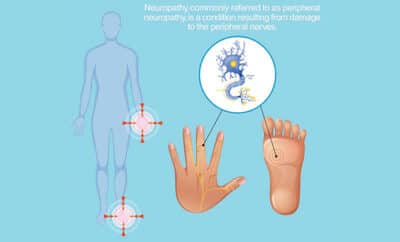SENIOR CARE NOTES: Do You Know Where Your Loved One Is?
 Presented by Ron Miller
Presented by Ron Miller
Wandering poses one of the greatest safety risks for a senior with Alzheimer’s disease. There are over 5.5 million people in the United States with the disease and more than 60 percent of those affected will wander at some point through the progression of the disease. It’s a problem that will continue to grow.
Unless a cure is found, an estimated 16 million people will suffer from Alzheimer’s by the year 2050. If the ratio continues nearly 10 million people may potentially experience wandering. This is a major problem that confronts the entire world.
According to the Alzheimer’s Association, some of the signs that indicate that a person may wander are the following;
- Returns home from a regular walk or drive later than usual
- Attempts to fulfill former obligations such as going to work
- Wants to go home even tough they are already home; is restless, paces or makes repetitive movements
- Has difficulty locating familiar places like the bathroom, bedroom or dining room
- Asks about current or past friends and family
- Acts as if doing a hobby or chore but nothing gets done
- Appears lost in a new or changed environment
This seemingly pointless activity usually does have a reason. It is basically an attempt to communicate after language skills have been lost.
Although impossible to prevent wandering, there are steps that can be taken to minimize its occurrence.
- Install locks in doors, windows and gates
- Add a hidden bolt lock higher or lower than the line of sight
- Paint doors the same color as walls to become less visible
- Hang curtains in windows that match color of walls
- Provide a fence around the property to still enable outside enjoyment
- Install alarms set off by monitor detectors and warning bells on doors
- Post stop signs in restricted areas and putting a photo of the individual in his or her bedroom, as well as bathroom sign may help them navigate their home
Watch for patterns if wandering occurs at the same time every day, it may help to plan a closely supervised activity at that time. As Alzheimer’s disease advances the patient may become frail and predisposed to falls. For that reason, living spaces will be safer if throw rugs, electrical cords, and other potential trip hazards are removed. If a person exhibits the early signs of wandering, a number of steps need to be taken to ensure safety.
The Alzheimer’s Association has a program called Medic Alert and Safe Return. It is designed to help identify people who wander and return them to their caregivers. For a $40 registration fee you receive an ID bracelet, labels for clothing , ID cards, registration in a national data base with emergency contact information and a 24 hour toll free number to report someone who is lost. You may register someone by calling 1-888-572-8566.
Testimonial
“Angel Companions took care of my grandmother when she was homebound and they did a wonderful job. They were friendly, on time, reliable and truly cared about my grandmother even on a personal level. They even kept in touch to see how she was doing when she was admitted to a nursing home. They really helped me and I am so glad that I found them”. (Thank you for everything and for being so kind to May).
Ron Miller is ready to help New Castle and Kent County Seniors needing assistance with the activities of daily living, facing physical challenges, those suffering from dementia, and clients needing comfort while under hospice care.
“I opened Angel Companions of Wilmington because I deeply understand the difficulties of aging and its impact on both the individual and those closest to them. Our team pays attention to the details, offering a fresh perspective on any situation and provides true heart services to our clients”.
Ron Miller is the President of Angel Companions located in both New Castle and Kent Counties.
Headshot by C.M. Baker
CNAs & Caregivers
Angel Companions is seeking qualified caregivers with at least two years of experience throughout New Castle and Kent Counties. For immediate consideration, please email resume to [email protected]
Serious inquires only please.
Angel Companions® Wilmington, Delaware
To learn more contact us (302) 343-7003 angelcompanions.net






